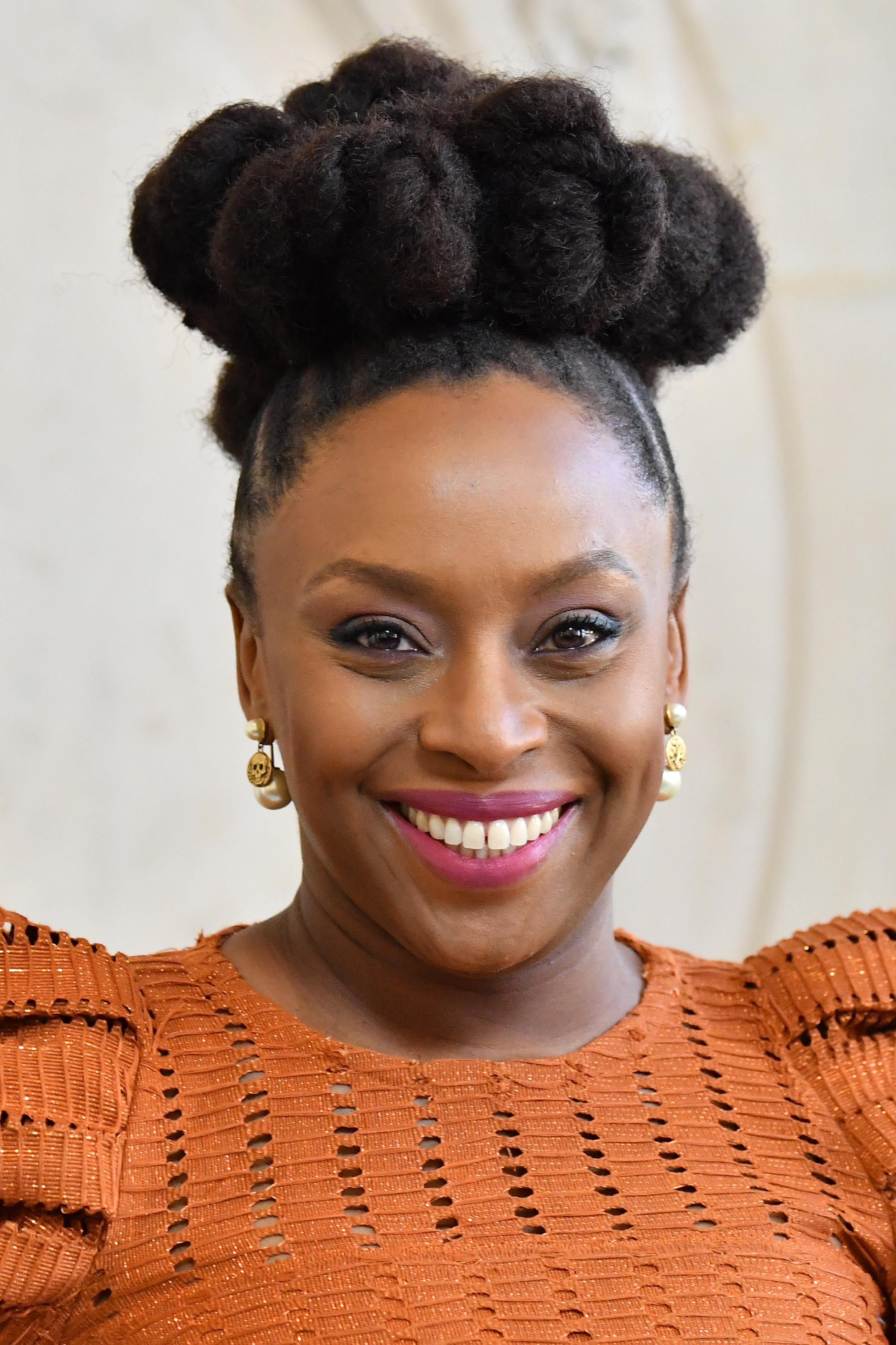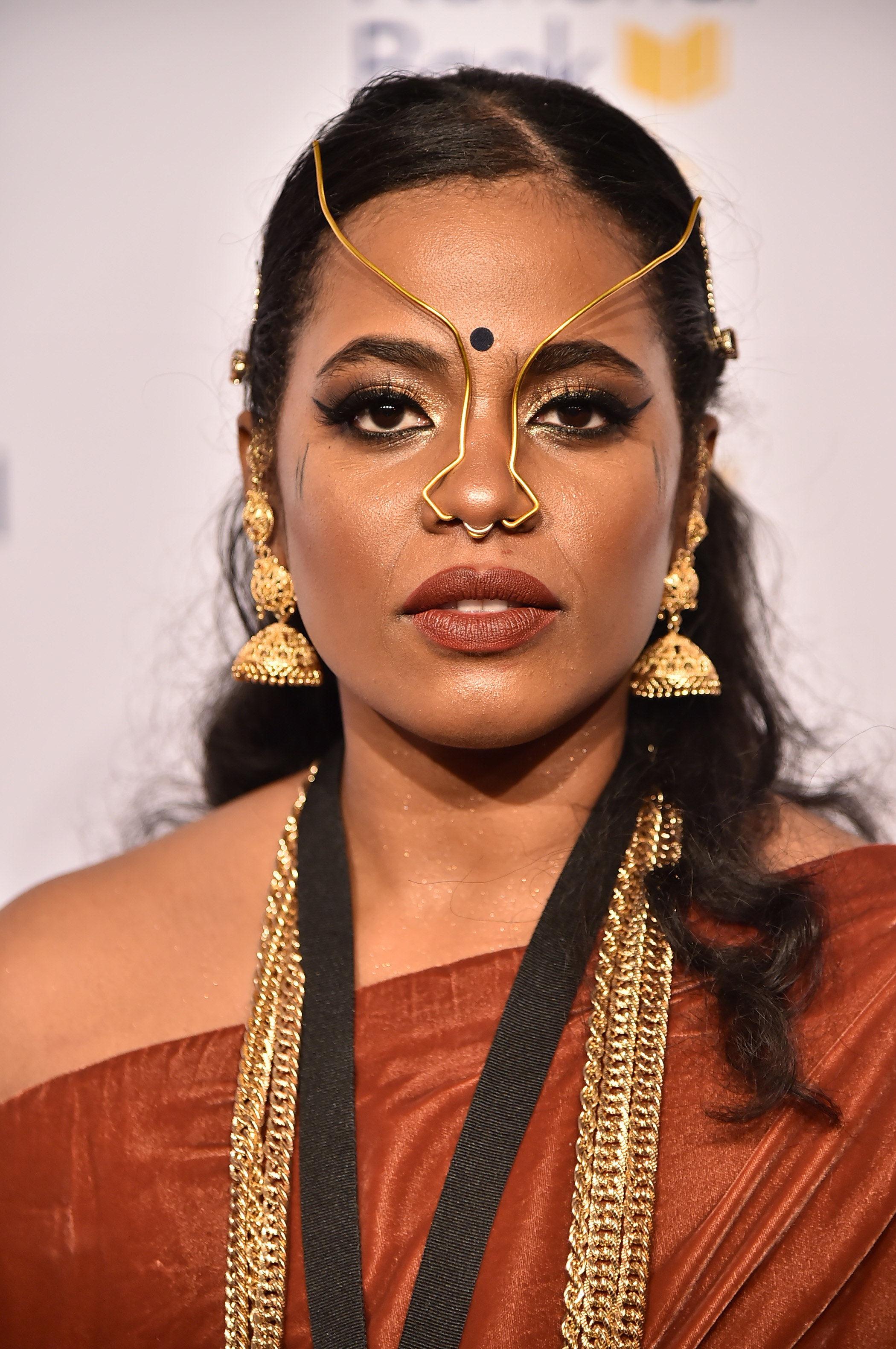Last month, the novelist Chimamanda Ngozi Adichie self-published a personal essay that went so viral it briefly crashed her website. The piece, titled “It Is Obscene: A True Reflection in Three Parts,” addressed social media discourse, literary culture, freedom of speech and trans rights. In particular, Adichie referred to backlash she has faced in recent years from many who found public comments she has made transphobic, including a 2017 interview in which she said that “trans women are trans women,” rather than affirm their status as women without caveat.
Adichie, the award-winning author of books including Americanah and Half of a Yellow Sun, is believed to have referenced interactions between herself and the also award-winning author and activist Akwaeke Emezi, who identifies as nonbinary, throughout the essay—though Emezi is never explicitly named. Emezi responded to the piece on a post to their Instagram story on June 16, saying that emails between the two were used without their consent, and that Adichie “wrote an incendiary post that she knew would send hundreds of transphobic and homophobic people to [their] social media.”
Controversy immediately erupted over both Adichie’s views on gender and her argument that social media has become a breeding ground for toxicity. (A publicist for Adichie, reached by TIME, said that she would be making no further comment on the essay.)
The essay’s implications go far beyond the literary world, and are indicative of a larger conflict: powerful groups, from lawmakers to authors, implicitly—or, in many instances, purposely—denying the rights of trans people, even as the broader culture appears to become more inclusive. “Adichie’s social capital originated from the publishing industry right here in the States,” Emezi wrote on Instagram, “and that is what she is using to mobilize her fans to amplify her hatred of trans people and her attacks on the writers who called her in.”
“It seems to belong to a genre that has become quite familiar by this point: the genre of coming out as against cancel culture in some way,” adds Grace Lavery, an associate English professor at the University of California, Berkeley who edits the Transgender Studies Quarterly, of Adichie’s essay. “[I think there is] a great deal that is admirable and relatable,” she continues, “and I understand why people feel troubled and disconcerted by it.”
The cancel culture narrative

Adichie’s essay opened by detailing what she describes as problematic interactions with participants at a writing workshop she hosted in Lagos, Nigeria several years ago—she writes of feeling taken advantage of, and of being “insulted” by their public criticism on social media of her 2017 interview. In a specific example, Adichie said she later received an early copy of a novel one writer who had attended her workshop was having published; surprised to find her name in the writer’s biography, she requested it be removed. “I knew they were actively campaigning to ‘cancel’ me and tweeting about how I should no longer be invited to speak at events,” she wrote. “This I felt I could not ignore.”
Last year, Emezi tweeted that Adichie had asked for her name to be removed from the author biography included in their debut novel Freshwater. (“I’m okay with that, Emezi added of the situation. “Like, by all means, let us not align. Take your ring away.”) Emezi has spoken about attending Adichie’s writing workshop, and has been publicly critical about the novelist’s remarks deemed transphobic—after Adichie told The Guardian that she found an anti-trans essay by J.K. Rowling to be “a perfectly reasonable piece,” Emezi posted a lengthy thread outlining their concerns as well as the consequences of someone with such literary stature having, and uplifting, such views.
Marquis Bey, an assistant professor of African American Studies at Northwestern University who studies Blackness, transness and Black feminist theory, says that it is possible to separate Adichie’s views from the influence of her work. “The work exceeds the author—they don’t have a totalitarian hold over it,” Bey tells TIME. “Adichie’s writing can do things that move people in different ways than her politics do.” Still, Bey wants to see the publishing industry hold authors accountable for expressing damaging views. That doesn’t mean they have to be “canceled,” though, Bey notes. They ask that the industry make its position clear: “Where do you stand in relation to this? You are not a neutral bystander. You are implicated in this as well. How are you going to redress all of this and attend to the harm that you’ve aided?”
In this context, narratives and essays such as Adichie’s often fit into a larger pattern of people critiquing cancel culture while obscuring transphobia or other discriminatory rhetoric. Lavery says many people who are afraid of being “canceled” are those who have access to various forms of institutional power. That power manifests itself in different ways across organizations and people; in the publishing industry, for example, it is often held by those with commercial and critical success. “Many of the people who are afraid of being canceled hold offices that have literally never been held by trans people,” Lavery continues. “In order to be afraid of being canceled, you have to have something to lose. One has to be speaking from a position of power or relative privilege.”
As they have such comparatively limited power and privilege to begin with, trans people are therefore both less likely to be “canceled” and, yet, closer to being “canceled” simply for being who they are. In a post on Instagram, Emezi called out the publishing industry for enabling Adichie’s behavior. “She abused her power, publishing personal essays from her former students without consent because we had the nerve to call her out on her bigotry toward trans women,” Emezi wrote.
How transphobia manifests online—and in the literary world

Cancel culture is not applied equally—with damaging sentiments often being made about trans people, specifically, under the guise of debates over free speech. (In the literary world, for example, prominent authors like J.K. Rowling have addressed controversies surrounding their transphobic remarks as issues of free speech and pertaining to cisgender women’s rights.) While Lavery says she has empathy for Adichie, she doesn’t agree with how the novelist has framed trans people as being oversensitive to questions around speech or speech restriction. “The scapegoating of trans politics along those grounds has been quite deliberate,” Lavery says, referencing the work of “conservative activists” who have “quite deliberately shaped the public discourse around trans issues.”
Indeed, many of the responses to Adichie’s essay have been transphobic, including attempts from high-profile white reactionary conservatives to center themselves in the controversy. Bey believes these people are using the essay as justification for their own transphobic views: “Here’s this Black woman who understands herself as a feminist, and they’re capitalizing off of that as a way to shield them from being anti-Black or anti-trans—because they can make recourse to Adichie that means they’re not racist or sexist or anti-feminist.”
The ensuing dialogue points to a pervasive problem surrounding representation in the publishing industry, and the space afforded to writers from marginalized communities in the mainstream literary scene. In 2019, Emezi became the first nonbinary author to be nominated for the Women’s Prize for Fiction, a U.K. literary award, for their novel Freshwater. (The judges of the prize have said they did not know Emezi’s gender when they chose their novel.) The next year, the Women’s Prize put out a statement clarifying who would be eligible for the award: “the word ‘woman’ equates to a cis woman, a transgender woman or anyone who is legally defined as a woman or the female sex.’” Emezi declined to submit their second adult novel, The Death of Vivek Oji, after being told the Prize would therefore need information about their “sex as defined by law.”
And in April of this year, Torrey Peters became the first trans woman to be nominated for the Women’s Prize for her novel Detransition, Baby. Following the nomination, Peters was subjected to transphobic backlash, most notably in the form of a public letter from a group calling for the Women’s Prize to make trans authors ineligible. The charity behind the prize responded by releasing a statement of support of all the books they had nominated. “These are not readers,” Peters told NBC News in a recent interview, referring to the writers of the letter. “People used it as an opportunity to put forth the oldest, most homophobic things. You can recognize a bigot as opposed to a reader, because bigots are just saying the awful shit that they said first about gay men, then lesbians, and now it’s about trans people.”
Misperceptions of trans rights globally
As they continue to be the subjects of “cancel culture” debates, trans people’s rights and identity continue to be misperceived. Bey says that a widespread misunderstanding is that being trans means being born as a man or a woman and then becoming the “opposite” gender, when for many trans people the situation—and their identity—is far more nuanced. “It allows for the continual flattening and collapsing of what trans subjectivity is, and can be, in terms of imposing a staunch interrogation of the violence of the gender binary,” Bey explains.
And this is all arriving at a time when trans people continue to fight for their basic rights. As of April 2021, more than 100 bills have been introduced across 33 states in the United States that target trans people. Human rights groups have been calling 2021 a record-breaking year for anti-LGBTQ legislation. “People seem to think that trans people are gaining rights rather than losing rights,” Lavery says. “It’s a very frightening time to be trans, and somehow this idea persists that trans people are on the march, but the opposite is true. Trans people’s civil rights are in rapid retreat.”
Emezi spoke to this tension in their June 16 Instagram statement, and continued to call for accountability in the face of what is widely being viewed as a renewed culture war wrought upon LGBTQ people. “I will keep pointing out true things because stories can also be war,” they wrote, “and silence is not a reasonable weapon for me when trans people are dying and being targeted for even more death.”
More Must-Reads from TIME
- How Donald Trump Won
- The Best Inventions of 2024
- Why Sleep Is the Key to Living Longer
- Robert Zemeckis Just Wants to Move You
- How to Break 8 Toxic Communication Habits
- Nicola Coughlan Bet on Herself—And Won
- Why Vinegar Is So Good for You
- Meet TIME's Newest Class of Next Generation Leaders
Write to Annabel Gutterman at annabel.gutterman@time.com